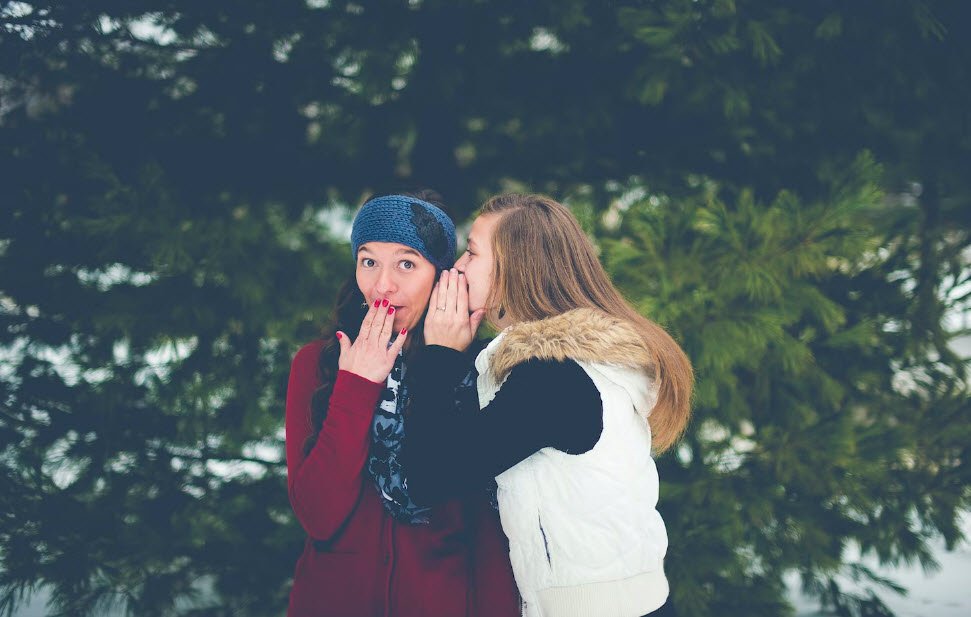
In this article, you’ll take a free IELTS speaking practice questions with the most frequently used IELTS speaking topics (animal/pet/advertisement/city/book/building/choice/competition/computer/internet/communication/dream/environment/events/family/festival/celebration/food/free times/friend/gift/present/hazard/risk/danger/health/keeping fit/history/person/job/luck/superstition/magazine/newspaper/movie/film/money/music/museum/natural/object/gadget/machine/party/possession/photograph/school/shopping/skill/sport/travel/tourism/holiday/transportation/writing).
Also Read:
- Idioms and Other Expressions Used For Talking About ‘Work’
- What Are Weasel Words?
- Money and Finance – Test Your Knowledge
- Phrasal Verbs, Idioms and Other Expressions Using ‘CUT’
- How to Say Time in English
- Idioms and Other Expressions Used For Talking About Money
- Shopping and Consumerism – Match the Correct Name
- Phrasal Verbs – Choose the Correct Verb
- Currency Markets – Choose The Best Words
- Personal Qualities – Use the Best Nouns and Adjectives
Below is our full list of IELTS speaking questions. You should prepare ideas for these topics but not memorise whole answers. Your answers should be natural when you speak in the test. Prepare your daily life, your recent memories, your childhood memories, your opinions, popular things in your country etc.
- In what ways are humans different from other animals?
- What are the main roles of animals in your country?
- In what ways humans are different from other animals?
- Which species are endangered in your country? Why?
- Do you think modern farming methods are cruel to animals?
- Why do many people refuse to eat meat?
- Why do people have pets?
- In your opinion, what kind of animal makes the best pet?
- In what different ways have animals been useful to people throughout history?
- How are people attitudes toward animals different now than they were in the past?
- What’s the most popular form of advertising in your country?
- Would you like to work for an advertising company?
- Do you agree that advertisements for smoking should be banned?
- What role does advertising play in your society?
- How has advertising contributed to globalization?
- How might advertising change in the future?
- Some people think advertising can be dangerous. Would you agree or disagree with that?
- Do you think that governments should use laws to protect people from advertising?
- How well people be able to resist advertising in the future?
- Can you describe some of the benefits of living in an apartment, as opposed to a house?
- In the last century, why do you think we more skyscrapers were built?
- These days we see more “green” buildings that are environmentally friendly. What do you think 1s the reason for this?
- Why de many people leave home when they are still quite young?
- What personal qualities do you feel are required for a young person to live alone?
- Why do you think some people write books?
- What type of books do you read often?
- Do you prefer to read a book or watch a movie on the same subject and why?
- Are books essential in the 21st century?
- Can the books we read tell us about real life?
- Is it possible to define literature?
- What benefits are gained from studying literature?
- How important is it for children to learn to read?
- What are the disadvantages for adults who can not read?
- How can children be encouraged to read for enjoyment?
- How reading books is different from watching TV or playing computer games?
- Do you think reading will become an important ability in the future?
- Do you think a time will come when people get all factual information from the Internet?
- Why do you think some people decide to write a book?
- Do you think newspapers are a good source of information?
- How often do you read a newspaper?
- Should newspapers contain illustrations? Why?
- What can we do to encourage young people to read more?
- How do people in your country feel about protecting historic buildings?
- Do you think an area can benefit from having an interesting historic place locally? In what way?
- What do you think will happen to historic places or buildings in the future?
- What sort of historical buildings are popular in your country?
- Why do you think cultural and historical buildings should be maintained?
- What are some popular cultural places in your country?
- What kinds of cultural programs/activities are common in your country?
- Why do you think governments like to create impressive buildings…such as art gallery or a huge sports stadium?
- Could you describe that traditional architecture of your country?
- What are the typical choices people make at different stages of their lives?
- Should important choices be made by parents rather than by young adults?
- Why do some people like to discuss choices with other people?
- What kind of choices do people have to make in their everyday life?
- Why do some people choose to do the same things everyday? Are there any disadvantages in this?
- Do you think that people today have more choices to make today than in the past?
- In many countries there has been large-scale migration from the countryside to the cities. Do you think this is positive or negative?
- Do you think that the possibility of working from home via the internet will lead to many people going back to the countryside?
- In what ways do the new mega cities of Asia, Africa, and South America differ from older ones such as London or New York?
- Should there be a limit on the size of cities?
- Why do people immigrate to other countries?
- What’s your government’s current policy towards immigration?
- How can migrants help a country’s economy?
- Do you like cities generally?
- Would you like to live in the city you spoke about?
- How does living in a city compare with living in a small town?
- How can we encourage more people to use public transport?
- Do you believe that it should be compulsory to study a foreign language?
- What role do museum play in our society?
- How important is sport in the school curriculum?
- In your opinion what are the most serious problems associated with modern city life?
- What are the kinds of things people like to do when visiting towns and cities?
- Why do many people to live in cities rather than in the countryside?
- Can you identify some of the main problems of living in large cities?
- What measures could be taken to reduce problems of congestion in the cities?
- Do you enjoy entering competitions?
- Have you entered any other competitions?
- What is the role of advertising in internet?
- How do you think the internet will affect buying patterns in the future?
- What effect has the internet had on the way people generally communicate with each other?
- Why do think the internet is being used more and more for communication?
- How reliable do you think information from the internet is? Why? What about the news on the internet?
- Why do you think some people use the internet for shopping? Why doesn’t everyone use it in this way?
- What kinds of things are easy t buy and sell online? Can you give me some examples?
- Do you think shopping on the internet will be more or less popular in the future? Why?
- What other uses will computers have in future?
- Do you think children will benefit more from using computers?
- What are different ways of communications?
- Do you prefer to write a letter to a friend or send an e-mail and why?
- How technology affected the way people communicate?
- What can dreams tell us about ourselves?
- Why dreams considered important in many cultures?
- Do you think it is helpful to interpret someone’s dreams for them?
- Are psychological issues more prevalent in modern society?
- How far should we try to investigate our inner selves?
- How aware do you think people are nowadays about environmental issues?
- In what ways is life becoming safer, and in what ways is it becoming more dangerous?
- Should people always avoid dangers, or is it a good idea to take a risk?
- What risk should people try to avoid?
- Do you think people take fewer risks as they grow older? Why?
- How important is it to have adventure in our lives?
- What do people learn about themselves from having adventures?
- What kind of public events are popular in your country?
- What is the importance of attending such public events?
- What would you regard as the most significant events in your country’s recent history?
- In what ways can a family be similar to each other?
- In terms of personality, are people more influenced by their family or by their friends?
- Do you think that daughters are always more similar to mothers than to male relatives? What about sons and fathers?
- Where can people in your country get information about genetic research?
- How do people in your country feel about genetic research?
- Should this research be funded by the governments or private companies? Why?
- In what ways have families in your country changed in recent years?
- Should husbands and wives have different roles within the family?
- Which are more important to you: your family or your friends?
- What conflicts can arise between a person’s family and a person’s friends?
- What responsibilities do parents have towards their children?
- What responsibilities do children have towards their parents?
- Do you think the family unit is less important in modern life now?
- Should children look after their parents when they get older?
- What qualities should a parent have?
- Do you spend more times with your family or friends?
- How have families changed over the last 50 years?
- Do you think it is important for young children to have a role model?
- What are the advantages and disadvantages of being?
- Do you think new festivals will be introduced in the future?
- Why do you think festivals are important in the working year?
- Would you agree that the original significance of the festivals is often lost today?
- How may globalization affect different festivals around the world?
- What roles do media play in festivals, do you think?
- What events in a person’s life are most celebrated in your country?
- What about the significance of gifts, are their particular presents that are given on particular occasions?
- How have cultural celebrations and festivals changed in your country?
- Is it important for the immigrants to adopt customs and festivals that are celebrated in their new country?
- Are there many other festivals in your country?
- What type of special occasions are generally celebrated in your country?
- How important is it for families to celebrate occasions together? Why?
- Are family occasions as important today as they were for former generations?
- Are birthday celebrations important in your country?
- How are older people treated in your country?
- Are birthday celebrations different now than they were in the past? Why or why not?
- In your opinion, how will the role of older people in your culture change in the future?
- What events in a person’s life are most celebrated in your country?
- What about the significance of gifts, are there particular occasions?
- Celebrations such as wedding are often times when families gather together,
- How is the way we celebrate events such as birthdays and religious days changing?
- Do you think such changes are good or bad thing?
- Which celebrations do you think will change the most in the next few years?
- How do you think they will change and why?
- If you invite a friend, what meal are you likely to offer them?
- What kinds of food are popular in your country?
- What is the eating habit of people like in your country?
- Do you prefer eating at home or in a restaurant?
- Are there any type of food which we should not eat too much of?
- How important is to be careful about what we eat?
- Do you think the quality of food is better now than it was before?
- What do you think a healthy diet consists of?
- Which one do people in your country prefer: fast food or traditional food?
- Do you think children should be taught healthy diets and cooking at schools? Why?
- At what age do you think children should be taught to cook?
- What can be done to prevent poor people in the world going hungry?
- Should rich countries help poor countries with more than just food?
- What kinds of food do you think we should eat, and which should we avoid?
- What role does food and drink play in your culture? Do you think people in your country eat better or worse nowadays than they did in the past?
- Do you think science is improving the quality of the food we eat, or making some foods danger to our health?
- What foods do you consider are good for you? Why?
- Why do you think people eat such things, if they are good for them?
- How do you think people’s eating habits have changed over the years?
- How could the eating habits of children be improved?
- If you could, how would you change your own eating habits?
- Do you think the way people eat now is different from the way they ate in your grandparents’ day?
- Is watching television a good way of relaxing?
- What leisure activities would you recommend as a way of combating stress?
- Do young people get enough physical exercise these days?
- How do people usually meet new friends where you live?
- Is it easier for adults or children to make new friends? Why?
- How are relationships with friends different from relationships at work/college?
- Is it possible for people to be close friends with their boss or teacher? Why?
- Some people believe that friends can never be as important as family. Do you agree?
- How are responsibilities towards friends and family different?
- Will the relative importance of friends and family change in future societies?
- What are the qualities of a good friend?
- What role do friends play in most people’s lives?
- What differences are there between men’s and women’s friendship?
- Do you think the nature of friendship is changing?
- What kind of presents do children ask for today?
- What effect was advertising had on this?
- Is there a case for banning advertising directed at children?
- Which do you enjoy more: giving or receiving presents?
- Do you like presents to be a surprise, or do you prefer to choose what you are given?
- On what occasions do people in your country give each other presents?
- Do you feel the commercialization of gift-giving, e.g. Christmas in certain countries, has gone too far?
- What is the role of charities nowadays?
- Which charity would you like to be able to give a lot of money to?
- Should rich countries give more financial assistance to poorer ones?
- How can we encourage more young people to do voluntary activities?
- How important is risk management?
- What can be done to prevent natural disasters?
- What are the impacts of natural hazards on the surrounding areas?
- What is your attitude towards taking risk at work or in your hobbies?
- What do most people in your country do to keep fit?
- How important is it for people to do some regular physical exercise?
- Why do you think that modern lifestyles are not healthy?
- 205 Why do some people choose to lead unhealthy lives?
- Should individuals and governments be responsible for making people’s lifestyle healthy?
- What could be done to encourage people to live in a healthy way?
- What are the best ways to keep healthy?
- What type of food and drink should be avoided in a healthy diet?
- Do you think healthcare facilities such as hospitals need to be improved?
- How important is alternative medicine in today’s society?
- What will medical treatment be like in 50 years’ time?
- Studying history can help countries to avoid repeating past mistakes. Do you agree or not?
- Could you comment on suggestion that studying your own country’s history can help us t understand present-day situations?
- How important do you consider it to study the history of other countries?
- How has life changed for young people in your country since your parents’ time?
- In which other period of history would you like to have lived? Why?
- What do you think future historians will say about the way we live now?
- Is it important for young children to have a role model?
- What are the advantages and disadvantages of being a child?
- How do you imagine traditional relationships changing in the future?
- Why do you think celebrities become role models to so many people?
- What is the importance of having friends?
- How have families changed over the last 50 years?
- What factors do you think are important in a good relationship?
- What is the best way to prepare for a job interview?
- Which jobs do you think are the most dangerous?
- How can employers keep their staff happy?
- Do you think pop and sports stars earn too much money?
- How important is appropriate dress at work?
- Is it better to stay in one job for a long time to have many different jobs?
- Describe the range of job opportunities in your country?
- If you ran your own business, what would it be?
- What things are important to consider before setting up your won business?
- How possible developments in your country may affect the types of work available.
- What is the best way to prepare for a job interview?
- How can employers keep their staff happy?
- Which jobs do you think are the most dangerous?
- How important is appropriate dress at work?
- Is it better to stay in one job for a long time or have many different jobs?
- What do most people consider as important when deciding on a Job or career?
- In modern life a lot of people work too hard. What are the effects of this?
- At what age do you think people should retire from work?
- How could the problems of overworking be avoided?
- Do you think this should be the same for all jobs?
- How has technology changed the way that people work?
- What further changes in the way work do you think we will see in the future?
- Do you think people are happy to stay in the same job for a long time these days?
- What types of jobs are popular these days? Why?
- Which jobs do you think will be popular in future? Why?
- Do you value the experience you have in this job?
- Would you consider doing the same type of job again?
- Which jobs are most respected in your country?
- How important is it to enjoy your work? Why?
- Do you think schools provide enough advice and support about future career?
- What changes have there been in recent years in employment in your country?
- Do you agree that for a job should reflect the level of contribution to community the job makes?
- What do most people consider as important when deciding on a job or career?
- In modern life a lot of people work too hard. What are the effects of this?
- How could the problems of overworking be avoided?
- At what age do you think people should retire from work?
- Do you think this should be the same for all jobs?
- How has technology changed the way that people work?
- What further changes in the way people work do you think we will see in the future?
- Do you think people in your country are superstitious?
- Can you describe a superstition that they believe in?
- Do you think people are less superstitious than they uses to be?
- Will the future bring any new types of superstition?
- What activities do people take-part that are based on luck?
- Is there a difference between luck and judgment?
- Is it ever possible for people to create their own luck?
- What sort of famous people would you describe as lucky?
- In what ways are newspapers better for learning about the news than listening to the radio or watching?
- Do you think newspapers should be completely free to say whatever they want?
- What do people enjoy reading in your country?
- Do you think it is important for people to read a lot?
- What sort of stories do newspapers and magazines publish about well-known or famous people in your country?
- Do you think the media should be allowed to publish stories about the private lives of public figures?
- Do you think the cinema has increased or decreased in popularity in recent years?
- In your opinion, will this trend continue into the future?
- What are the advantages and disadvantages of making films of real-life events?
- How important do you think it is for a film-maker to remain true to the original story?
- Should films and television be censored or should we be free to choose what we see?
- How do you think censorship laws will change in the next 20 years?
- How important a form of entertainment is film for you and your friends? Do you think film is effective as a carrier of a message?
- Is film a useful medium for education? What sort of things cab be usually taught by film?
- Do you think there is too much violence in films? Do you think such portrayals are harmful to anyone?
- What do you think of the way men and women are portrayed in film?
- What sort of things do you believe should be censored out of films?
- Would you recommend others to watch it? Why.
- How the movie industry has changes in recent years in your country?
- What types of movie is more popular among the young?
- Do you prefer watching films in the cinema or on videos?
- Do you think television and video will kill the cinema?
- Special cameras are sometimes used to film everything that goes on in the street and in shops. Do you think this is a good idea?
- Do you think other people would feel the same in that situation?
- Have you had a similar experience since then?
- How would you account for the popularity of credit cards?
- Can you outline the methods used to encourage people to borrow money?
- Can you suggest ways to educate people about dangers of borrowing a lot of money?
- Could you speculate on whether people will change their attitudes towards borrowing money?
- How do you think developments in information technology will alter the way individuals deal with their money in the future?
- How do you predict people’s shopping habits will change in the future?
- What kinds of music are popular with young people in your country?
- How gas technology affected the kinds of music popular with young people?
- What do you think influences a young person’s taste in music?
- How important is it for a culture to have musical traditions?
- Why do you think countries have traditional anthems or songs?
- What is the national music of your country?
- How important is music in your culture and traditions?
- On what occasions does music play an important rile in your country?
- Is there enough time in the primary school curriculum to introduce music?
- Does every school have the financial resources to support such a program?
- What are the benefits of learning a musical instrument at a young age?
- What are the challenges in teaching music to young children?
- How important is music in your life?
- When and where did you see it?
- Have you ever seen anything else similar to it?
- Do you like museums/art galleries?
- Would you recommend this museum to other people?
- How does water transport, like boats and ships, compare with other kinds?
- Are there any advantages/disadvantages of water transport?
- How important is it for a town or a city to be located near river or the sea? Why?
- Have there been any advantages in the number of jobs available in fishing and water transport industries, do you think? Why do you think this is?
- What do you think are the most important inventions of the last 50 years?
- How have mobile phones made communications easier?
- Which household appliances do you think people need most?
- What are the disadvantages of modern technology?
- Do you think we rely too much on technology?
- What technological developments might happen in the future in transport, education or health?
- What types of parties are popular in your country?
- What sort of activities do people do at parties?
- What do you think of attending parties?
- What do people wear in parties?
- What kind of people become famous these days?
- What are good things about being famous?
- How media in your country treat famous people?
- Why do you think ordinary people are interested in the lives of famous people?
- How do you think people will become famous in future?
- Has this person had to make sacrifices in order to achieve success?
- Do most people in your country share your admiration for him / her?
- What would you do if you met a famous person?
- Do you think you’ll ever be famous?
- If you could meet anyone famous who would it be and why?
- Should people loose right to privacy just because they are famous?
- In your opinion, do certain personality types handle fame or attention better than others?
- Do you think you can have a good influence on people?
- What qualities does influential person have?
- Do you think young people of today are too easily influenced?
- What sorts of things do young people get influenced by?
- What are the valuable personal possessions in your country?
- How your attitude toward keeping personal possessions has changed?
- Why do you think people keep valuable things?
- What kinds of products are manufactured in your home country?
- How important are they for local or national economy?
- Is manufacturing more important in your country than it was in the past? Why?
- What kind of possessions shows status in your country?
- Do you think it was different for your grand parents?
- Modern society is often called ‘materialistic’. Why do you think this 1s?
- Do you think consumerism is a positive or negative development?
- Are you a keen photographer?
- Do you like looking at people’s photograph?
- Do you prefer to take a photo or film? Why
- Do you think advertising can have harmful effects?
- News photographers sometimes take pictures of people in distress, after a disaster, etc. Do you think this is justified?
- Do you think too many subjects are taught at school?
- Have there been any major changes in the education system in your country?
- Should everyone be entitled to go to university?
- Do you think school uniforms are important?
- How has education changed in your country in the last 10 years?
- What changes do you foresee in the next 50 years?
- How do the expectations of today’s school leavers compare with those of the previous generation?
- What role do you think extracurricular activities play in education?
- What method of learning works best for you?
- How beneficial do you think it is to group students according to their level of ability?
- How were you taught history when you were at school?
- Are there other ways people can learn about history, apart from at school? How?
- Do you think history will still be a school subject in the future? Why?
- What subjects did you find the hardest at school?
- What did you enjoy the most about your school?
- What makes a good teacher?
- Should a teacher encourage students to treat him / her like a friend?
- Do well-behaved children deserve more of a teacher’s attention than badly behaved children?
- Which subjects at school do you think are the most important?
- How strict should school teachers be?
- How has education changed in your country in the last ten years?
- Is a good education more important to a boy or girl?
- How well do you think schools prepare young people for working life?
- Do you think schools should teach subjects like art, music and dancing?
- How important is it for schools to have computers for their students?
- Is the Internet a valuable educational tool?
- Did you find studying English at school?
- Is there any subject that you wish you could studied?
- School years are the best years of your life. Do you agree?
- What qualities do you think a good teacher needs to have?
- Do you think school gives you the skills to succeed in life?
- What other subjects do you think schools should teach to prepare students for life?
- Describe your old school uniform,
- Describe a special ceremony that took place at your school.
- Describe a school assignment that you once did.
- Describe a student you remember well.
- Describe the sports or social facilities at your school.
- Describe a school trip that you went on.
- Do you enjoy shopping for clothes?
- What kind of clothes do you feel least comfortable in?
- How much do you judge a person by his appearance?
- Do you think people should be free to wear what they want? Why.
- Do you think it is important to wear formal clothes for a job interview? Why.
- What typical things can visitors to your country buy?
- What things do young people like to buy in your country?
- What can shops do to make shopping more pleasant for their customers?
- Do you think that in the future people will do most of their shopping using the Internet? Why?
- How could government protect the rights of customers?
- Are there more goods available in the shops now than in the past? Why?
- Do people generally prefer to buy products from their own or from other countries?
- What kinds of products are most affected by fashions from other countries?
- Will overseas trends and fashions have more or less impact on what people buy in the future?
- What kind of techniques do advertisers use to persuade people to buy more?
- Who should be responsible for the quality of products: producers, shops or customers?
- Could you comment on the idea that children shouldn’t waste their time trying to develop a skill if they lack natural ability?
- Is it important to learn a skill?
- What do you think are the most important skills for children to learn in the modern world? Why?
- Which skills do you think children should learn at schools and which at home? Why?
- Do you think future generations will need to acquire new skills? What kind?
- What role do you think skills play in the modern work place?
- Do you think skills people need to learn have changed compared to the past?
- What do you think has brought about these changes?
- How have games changed from time when you were a child?
- Do you think this has been a positive change? Why?
- Why do you think children like playing games?
- Do you think competitive games are good or bad for children? In what ways?
- How can games sometimes help to unite people?
- Why is competition often seen as important in today’s society?
- Why is exercise good for the health?
- Which is more exciting to watch: athletics or gymnastics?
- Is it better to attend a sporting event or watch it on television? Why
- Some people say children shouldn’t be encouraged to play competitive games. What do you think?
- What are the benefits of becoming a member of a sports club?
- Do you think enough sport is taught if schools nowadays?
- Why do international sports competitions sometimes encourage strong nationalism?
- Is it always important to win at sport? Why?
- Do sportsmen and women make good role models for young people? Why?
- Are we too concerned with the sports stars rather than the sports themselves?
- Why do you think sports stars are paid so much? Is this justified? Why?
- Do you often go to sporting event?
- Are you very competitive?
- Governments allocate large amounts of money to sporting events such as the Olympics. Do to agree or disagree?
- A significant amount of time is spent on testing for the use of drugs in sport. How important is it?
- Can sport play a significant role in developing international relations?
- Large companies now sponsor major sporting events and teams. Can this sponsor ship lead to problems?
- Would you recommend it to other people to go there?
- Do you enjoy sightseeing in general?
- Have you been to a place like that before?
- What new developments will there be in tourism in future, do you think?
- What changes have there been in the last 50 years or so in the way people travel?
- What would you do to prepare yourself before you visited another country?
- How do you prefer to travel, by road, rail or train?
- Do you like traveling in general?
- Which places in your country do you think visitors would enjoy visiting most?
- What are the benefits of going away on holiday?
- What kinds of benefits might a significant increase in tourist numbers bring to a location?
- What developments affecting international travel might there be in the future?
- Why do you think people want to visit other countries?
- What makes some places very attractive to tourists?
- Will international tourism decrease or increase in future?
- How can tourism benefit local people and places?
- Are there any drawbacks of tourism?
- Does tourism help to promote international understanding? Why?
- How reliable is tourism as an industry?
- Does tourism bring mainly positive or negative things to a country?
- Why do people travel?
- What are some transportation problems in your
- How has plane travel changed the way people live?
- What are some advantages and disadvantages that tourism can have for a specific place?
- Do you think getting to work is easier or more difficult than it used to be?
- How methods of transports been improved?
- Are there any problems that have been created by new transport systems?
- Do you think these problems can be solved?
- What about the cost of traveling, do you think it is too high?
- What about your ideal journey, how and where would you like to travel?
- Do you prefer traveling by public transport or by car?
- What are the benefits of traveling by public transport?
- In your opinion, in what ways can governments encourage people to use public transport?
- Having too many cars in the roads causes air pollution. What are some of the other causes of pollution?
- How are environmentally friendly practices encouraged in your country?
- What effect have computers had on the way we write?
- What are the advantages and disadvantages of e-mail?
- Will writing remain an important skill in the future?
- What are the features of good writing?
- Why do many companies rely on written communications?
- Idioms and Other Expressions Used For Talking About ‘Work’
- What Are Weasel Words?
- Money and Finance – Test Your Knowledge
- Phrasal Verbs, Idioms and Other Expressions Using ‘CUT’
- How to Say Time in English
- Idioms and Other Expressions Used For Talking About Money
- Shopping and Consumerism – Match the Correct Name
- Phrasal Verbs – Choose the Correct Verb
- Currency Markets – Choose The Best Words
- Personal Qualities – Use the Best Nouns and Adjectives








